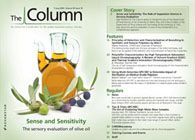Monitoring High Blood Pressure Treatment with HPLC–MS–MS
A new study in the journal Heart suggests that high performance liquid chromatography tandem mass spectrometry (HPLC?MS?MS) can be performed as a standard screening tool to identify patients who do not take the anti-hypertensive medications as prescribed by their doctor.1

Photo Credit: Getty Images/Henry Steadman
A new study in the journal Heart suggests that high performance liquid chromatography tandem mass spectrometry (HPLC–MS–MS) can be performed as a standard screening tool to identify patients who do not take the anti-hypertensive medications as prescribed by their doctor.1 The authors suggest that up to one in four patients is misdiagnosed as suffering with “resistant hypertension”, when in fact the patient has not been taking their prescribed medications as advised.
Co-author, Pankaj Gupta, Consultant Metabolic Medicine/Chemical Pathologist at the University of Leicester Hospital, told The Column that the study was inspired four years ago when a young patient was referred as being diagnosed with resistant high blood pressure. He said: “Maciej Tomaszewski and I had a discussion about the patient after his clinic visit and we were pondering on how we would confirm his adherence. I was aware of this technique [HPLC] and I confirmed in our laboratory that with a bit of modification we could test for the anti-hypertensive drugs. We were able to confirm the absence of all drugs in the patient. The patient admitted to poor adherence to medications when we discussed the results with him. This subsequently led to the audit – the results of which have been recently published in Heart.” Furthermore, Gupta said that non-adherence can occur in up to 50% of patients diagnosed with resistant hypertension, and is estimated to cost the UK health economy £4 billion annually.
The team spot sampled urine from 208 patients with long-standing high blood pressure who had been referred to a specialist hypertension clinic in Leeds, UK. HPLC–MS–MS was performed on the samples to detect the presence of a range of drugs known to be used in the treatment of hypertension. One in four patients were not taking their prescribed medication and one in 10 samples did not contain any anti-hypertension medication. The average number of drugs in samples was also lower than expected. Gupta said: “We are the first laboratory in the UK and the second in the world to set this method up. It detects 40 antihypertensive drugs and requires investment in a specialist and sensitive piece of kit. More importantly we are very fortunate to have the very best of expertise in our laboratory to detect drugs in urine and therefore setting up this method was something we were very capable of doing.”
The results suggest that HPLC–MS–MS could be used as a tool to screen for non-adherence to prescribed drug courses, however, the sample size is small and further investigations will need to be carried out in the future. Gupta told The Column: “Since the presentation of our results, there has been a lot of interest nationally and we are receiving samples for routine testing from hypertension clinics in the UK. There has also been interest expressed by other researchers. We are excited about this study and have applied for funding for larger projects. I think this test can lead to a paradigm shift in the way hypertension and other chronic cardiovascular diseases such as diabetes and heart failure are managed.” – B.D.
Reference
1. M. Tomaszewski, C. White, P. Patel, et al., Heart (First Published Online: 2 April 2014) doi: 10.1136/heartjnl-2013-305
This article was featured in The Column. Click to view the issue.

A Novel LC–QTOF-MS DIA Method for Pesticide Quantification and Screening in Agricultural Waters
May 8th 2025Scientists from the University of Santiago de Compostela developed a liquid chromatography quadrupole time-of-flight mass spectrometry (LC–QTOF-MS) operated in data-independent acquisition (DIA) mode for pesticide quantification in agriculturally impacted waters.
Investigating 3D-Printable Stationary Phases in Liquid Chromatography
May 7th 20253D printing technology has potential in chromatography, but a major challenge is developing materials with both high porosity and robust mechanical properties. Recently, scientists compared the separation performances of eight different 3D printable stationary phases.

.png&w=3840&q=75)

.png&w=3840&q=75)



.png&w=3840&q=75)



.png&w=3840&q=75)










